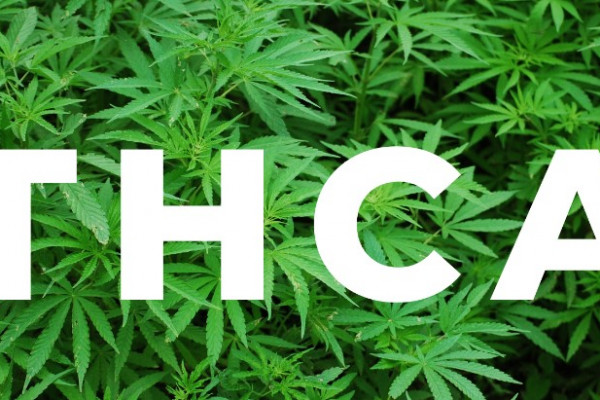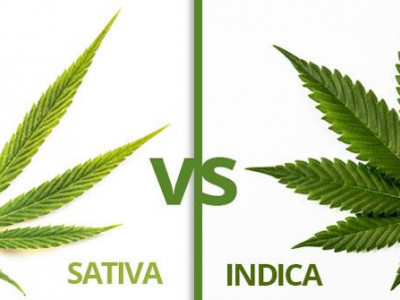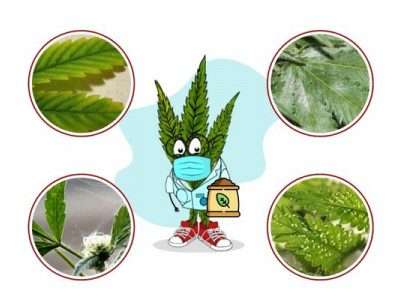0.00 грн.
CheckoutWhat is Tetrahydrocannabinolic acid (THCA)

First, you need to define what THC is. The abbreviation hides a very long name - tetrahydrocannabinol acid. This is one of the main compounds found in hemp plants. The acid has various biological and pharmacological properties beneficial to the human body.
Who first isolated and described THCA
Tetrahydrocannabinol acid was first isolated and described in 1965. This was done by the famous chemist Raphael Mechoulam. He also managed to discover the structure and mechanism of action of tetrahydrocannabinol. A natural question arises - what is the difference of THC and THCA? Scientific research has shown that THCA is a precursor to tetrahydrocannabinol, a substance that has a fairly strong psychoactive effect. This component of cannabis comes from the decarboxylation of THCA when exposed to heat, light, or oxygen. And the difference between THCA and CBD is that the second substance has no psychoactive effect and is used for medical purposes.
How does THCA affect the human body
The main sources of THCA in nature are the dried flowers and leaves of cannabis plants, especially varieties with high THC content. In order to obtain THCA, the following methods are used: extraction with solvents, chromatography, crystallization, and others.
The mechanism of action on the human body is that the acid binds to cannabinoid receptors type 1 (CB1) and type 2 (CB2). They are located in different parts of the central and peripheral nervous systems, in immune cells, the gastrointestinal tract and other organs. These receptors are part of the endocannabinoid system, which regulates many physiological and psychological processes: mood, appetite, pain perception, memory, immune response and others. Since THCA is an agonist of the CB1 and CB2 receptors, it activates and enhances their signals. However, the effect of THCA compared to THC is not as pronounced. This is due to the fact that it penetrates cell membranes less well.
THCA can have antidepressant, anticonvulsant, neuroprotective and neurogenic effects. At the same time, it helps improve memory and learning. It also has a positive effect on the digestive system: relieves nausea, prevents vomiting, stimulates appetite, improves intestinal motility.
The psychoactive effect of THCA depends on many factors, such as the dose, form of administration, individual sensitivity, and the presence of other substances in the body. In general, THC vs THCA has a more pronounced psychoactive effect. However, at high doses or when heated, THCA can be converted to THC and cause effects such as relaxation, changes in the perception of time and space, and decreased coordination of movements and reactions.
What health problems can THCA be used for?
The medical use of THCA for the treatment of various diseases and conditions is based on its ability to influence the endocannabinoid system and modulate various physiological processes. It may be useful in treating diseases and conditions such as arthritis, lupus, epilepsy, nausea, and vomiting due to chemotherapy, and loss of appetite due to cathexis or anorexia. It can also be used in medicine as a source of THC, which has a wide range of uses:
- treatment of glaucoma, as it reduces intraocular pressure;
- relief of seizures in neurodegenerative diseases such as Parkinson's disease, Alzheimer's disease;
- treatment of post-traumatic stress disorder (PTSD), since it blocks negative memories and nightmares;
- improves social behavior and communication, which helps with autism;
- induces apoptosis (suicide) of cancer cells and suppresses the formation of new tumor vessels.
The legal status of THCA in different countries varies from legalization to complete prohibition. In some countries, THCA is allowed only for medical purposes or with special permission.
Today, scientists in the fields of chemistry, biology, and medicine are discovering new properties of this substance. And the governments of many countries, taking into account the arguments and arguments of scientists, allow the legal use of medicines that contain TNSA and other cannabinoids.
*The material is for scientific informational purposes only, we do not encourage self-medication or the use of hemp plants, especially in countries where it is prohibited (including in Ukraine).


